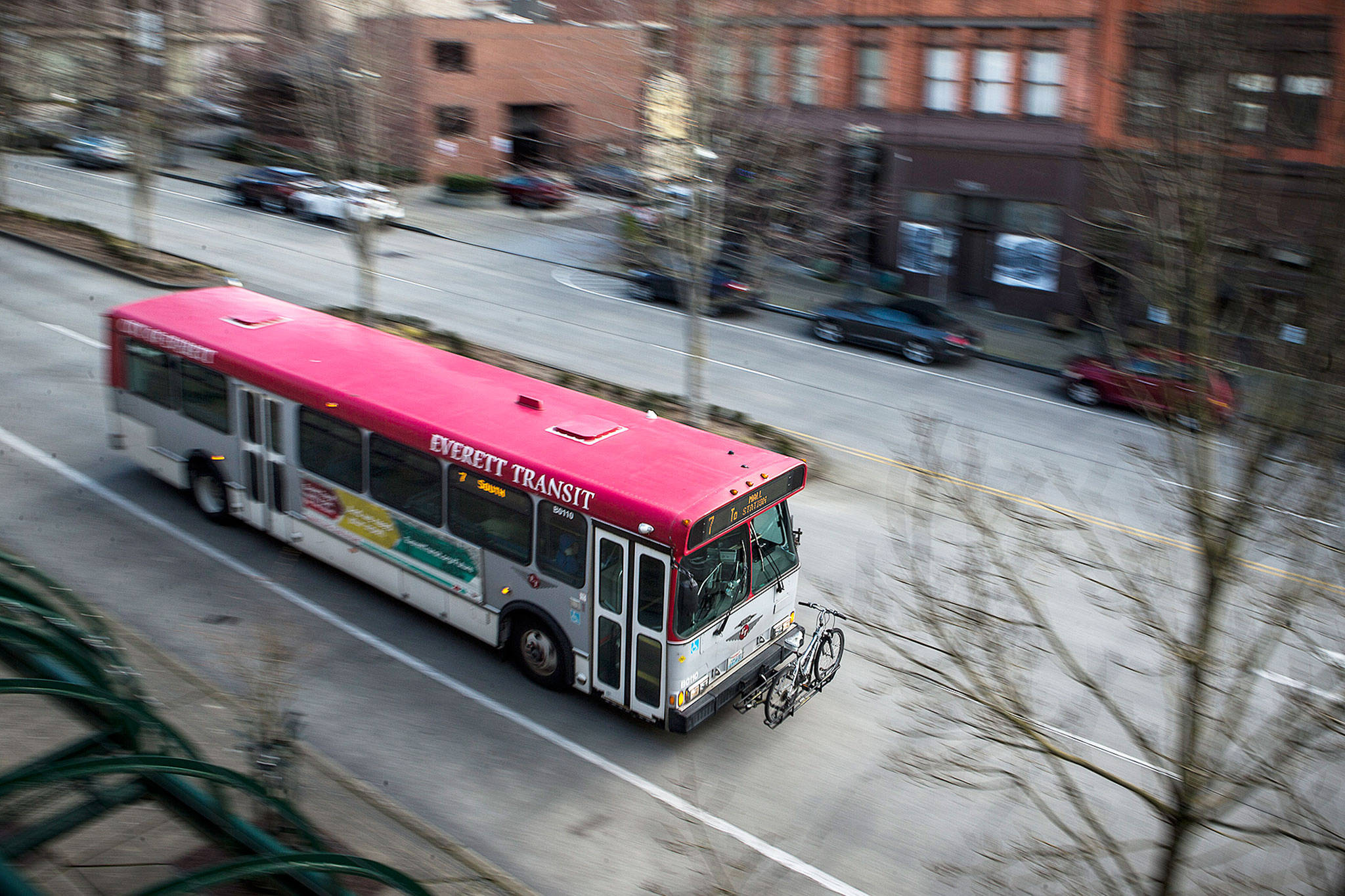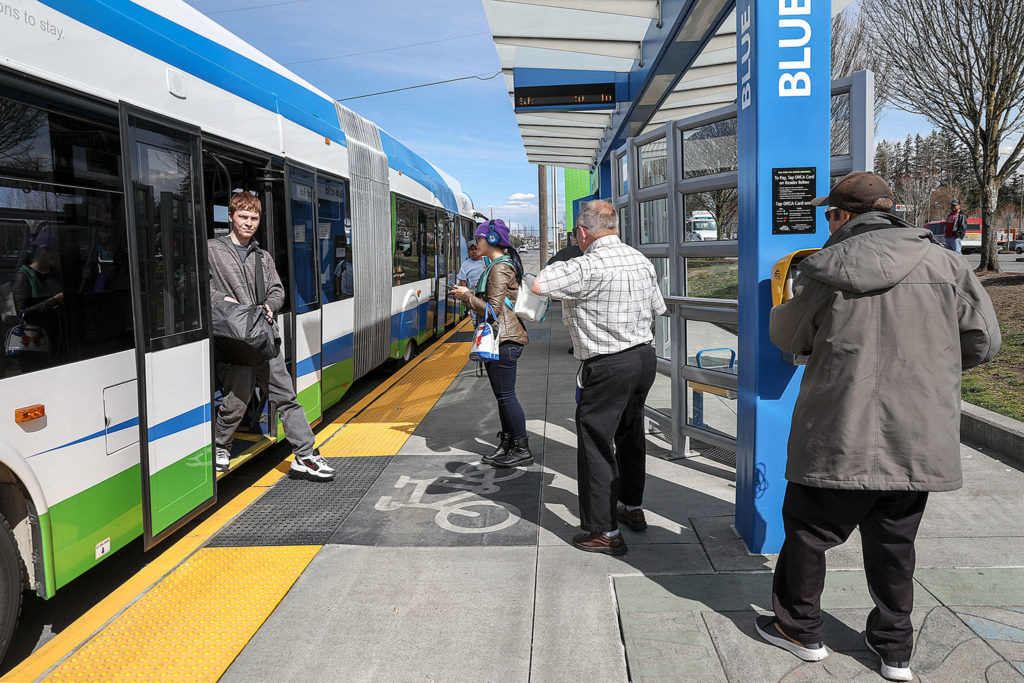EVERETT — Whether to keep Everett Transit or merge with another agency will get a more robust look by city leaders in 2020.
For the past couple of years, Everett officials have known their transit system could face a budget shortfall unless something changes. With sales tax revenue flagging as retail activity decreased over the past decade, the city is collecting fewer dollars for its bus system.
Sales tax accounts for about 80% of Everett Transit’s revenue.
During the Dec. 18 City Council meeting, Everett Transit Executive Director Paul Kaftanski warned that “a worrisome financial future” is ahead if the department keeps operating as it has. He presented a 20-year financial outlook of Everett Transit’s cost and revenue that showed service costs for four different scenarios were projected to surpass revenue within five to 10 years.
“It is not realistic to continue offering the current service level, already reduced by 7% this past March, with transit’s current revenue stream,” he said.
Higher fares, merging with another agency, sales tax increases, service cuts and other options will be considered by the City Council in the coming year.
Kaftanski said Everett Transit staff doesn’t recommend staying the course.
“For local public transit service in Everett, it represents a dystopian future,” he said.
Council members said they were convinced of the need for major changes after Kaftanski’s presentation.
“I agree that the status quo is not acceptable,” Councilwoman Brenda Stonecipher said.
The bus system is a public service, not a revenue generator. But soon it may not be able to sustain itself in at least a neutral way.
Everett Transit used reserves to avoid shortfalls after the Great Recession. A combination of fare increases and service cuts in 2018 — the first fare hike since 2013 — have also helped delay an impending deficit. Fixed-route fare for an adult or paratransit costs $2, with discounted fares for youths, seniors and people who have a disability.
One possible lifeline would mean giving up Everett Transit.
Community Transit, the public transportation benefit area that covers much of Snohomish County, pitched the possibility of assuming Everett Transit in November. At that meeting, Community Transit CEO Emmett Heath said if it took on Everett Transit, the city could gain additional Swift Bus Rapid Transit routes, increased frequency, and expanded hours.
Unified service from Everett joining Community Transit would increase frequency and hours of coverage, Kaftanski said. Specifically, his staff estimates buses would arrive every 10 minutes during peak times, 20 minutes during off-peak times on weekdays, and every 20-30 minutes on weekends. Buses could run 19.5 hours per day, seven days a week.
But a merger likely would eliminate special Everett Transit service such as shuttles during Sorticulture.
Everett is the only city within Snohomish County that is not part of Community Transit, which has routes and stops in town.
If Community Transit and Everett were to seek a merger, Everett voters would have the final say on joining the regional system. The earliest a measure could get on the ballot is fall 2021, Heath said.
Doing so would mean the city would relinquish direct control of transit service and not be guaranteed a seat on Community Transit’s board of directors. Merging with Community Transit would also mean the city’s sales tax would rise as Community Transit collects 1.2% sales tax within its service district. Everett Transit’s share of sales tax is 0.6%, though the city could seek voter approval to increase it.
Kaftanski and Everett Transit staff will provide additional analysis and public involvement in the process next year.
Ben Watanabe: bwatanabe@heraldnet.com; 425-339-3037; Twitter @benwatanabe.
Clarification: The City of Everett collects 0.6% of its sales tax for Everett Transit.
Talk to us
> Give us your news tips.
> Send us a letter to the editor.
> More Herald contact information.


























